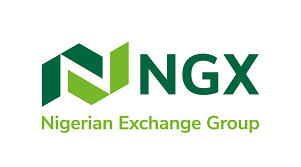How Equities Market Endures Bearish Sentiments, Sheds N675bn WoW

For the fourth consecutive week, the equities market of the Nigerian Exchange Limited (NGX) continued its bearish sentiments, due to massive sell-offs as market capitalisation shed N675 billion week-on-week (W-o-W) to close at N28.869 trillion.
The local equities market suffered loss again last week in a mixed session of buy-sell interests across major sectors of the market in reaction to the recent publications of economic data and dividend announcements by companies.
In the wake of the growing sell-off sentiments in the market, investors are beginning to reposition ahead of the first quarter earnings season based on the current price levels that have been perceived to be an attractive point of entry.
However, the profit taken in Airtel Africa, heaped greater pressure on the market, which caused the benchmark index to plummet by 2.28 per cent W-o-W to close at 52,994.13 points.
In fact, across the sectors last week, performance was largely on a bear trend across the indices under our purview except for the NGX Insurance index which gained 2.09 per cent week on week from buy interest. On the other hand, the Industrial index led the losers with 3.65 per cent loss week on week, while the NGX Banking index, NGX Consumer Goods index and NGX Oil & Gas index all traded southward to close the week by 1.05 per cent, 0.62 per cent and 0.11 per cent from the previous week.
The market breadth for the week was negative as 16 equities appreciated in price, 37 equities depreciated in price, while 103 equities remained unchanged. Nigerian Aviation Handling Company led the gainers table by 20.99 per cent to close at N9.80, per share. AXA Mansard Insurance followed with a gain of 15.79 per cent to close at N2.20, while CWG went up by 14.94 per cent to close to N1.00, per share.
On the other side, Eterna led the decliners table by 19.12 per cent to close at N5.50, per share. Multiverse Mining and Exploration followed with a loss of 18.83 per cent to close at N2.63, while Associated Bus Company declined by 16.22 per cent to close at 31 kobo, per share.
Overall, a total turnover of 1.054 billion shares worth N10.050 billion in 16,155 deals was traded last week by investors on the floor of the Exchange, in contrast to a total of 2.071 billion shares valued at N17.562 billion that exchanged hands previous week in 17,917 deals.
The Financial Services Industry (measured by volume) led the activity chart with 630.378 million shares valued at N5.438 billion traded in 7,705 deals; thus contributing 59.83 per cent and 54.11 per cent to the total equity turnover volume and value respectively. The Conglomerates Industry followed with 248.074 million shares worth N394.370 million in 812 deals, while the Oil and Gas Industry traded a turnover of 70.921 million shares worth N1.345 billion in 1,452 deals.
Trading in the top three equities; Transnational Corporation (Transcorp), United Bank for Africa (UBA) and Fidelity Bank, (measured by volume) accounted for 498.527 million shares worth N2.118 billion in 1,862 deals, contributing 47.32 per cent and 21.07 per cent to the total equity turnover volume and value respectively.
Market analysts, therefore, expected the Nigerian stock market to maintain downtrend this week on continuous sell pressure.
The market opened for four trading days last week as the federal government declared Friday April 7, 2022 (Good Friday) and Monday April 10, 2022 (Easter Monday) public holidays to commemorate the 2023 Easter celebrations.
Banks’ borrowings keep financial system liquidity in deficit
Nigerian deposit money banks (DMBs) are battling liquidity pressures, and this has resulted in sustained borrowings from the apex bank to ensure they keep to daily requirements. Funding rates have spiked as liquidity tightening persists.
The majority of banks are faced with liquidity pressures – except for cash-rich lenders, mostly Tier-1 banks, that continue to maintain a positive position at the standing deposit window.
Retail lenders are more active in the borrowing spree and records indicate some tier-2 lenders are ramping up borrowings to stay afloat.
Apart from offloading their investment securities, especially, Treasury bill holdings, which pushed the yield curve higher in the secondary market, banks maintain access to funding from standing lending facilities.
In a brief, analysts said the financial system deficit expanded by about 33% to close at ₦81.08 billion on Wednesday, sustaining the previous pattern even after the Central Bank of Nigeria refunded lender’s cash reserve ratio debits.
Opening market liquidity was reported at -N345.7 million on Friday.
Taking cognisance of liquidity tightening, analysts at TrustBanc Capital Limited hint that the surge in financial system deficit was driven by increased pressure by local banks at the Standing Lending Facility (SLF) window of the CBN.
As a result, Open Repo Rate closed at 18.63% on Wednesday, while Overnight Rate advanced by 25 basis points to close at a market cap level- 19.00%. Naira Lost 11% as Banks Issue New Update on FX Spending
“Barring any significant inflows into the system, we expect liquidity conditions to remain tight, while rates are expected to trade in the banking system at elevated levels”, TrustBanc Capital Limited said in a note to clients.
In the absence of any significant inflow into the system, analysts hint that trading sentiment in the fixed income market will remain bearish.









